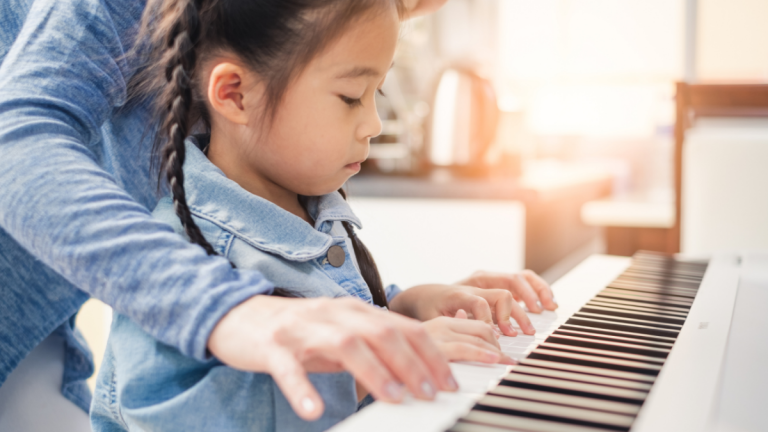Have you always dreamed of tickling the ivories like a pro? Or perhaps you’re a parent, hoping to instil a love for music in your child? Either way, piano lessons for beginners could be your first step on an exciting musical journey.
The Power of Piano
The piano is one of the most versatile and beautiful instruments, capable of producing everything from soul-stirring classical pieces to toe-tapping jazz tunes. But beyond enjoyment, learning to play the piano can also boost cognitive skills, improve hand-eye coordination, and foster discipline and patience1.
Starting Your Journey with Piano Lessons for Beginners
Starting piano lessons can be both exciting and daunting. Here are some tips to help you make the most of your beginner piano lessons.
- Finding the Right Teacher: A good teacher can effectively explain concepts, inspire you to practice, and provide constructive feedback. Consider factors such as their teaching style, experience, and qualifications.
- Choosing Your Instrument: As a beginner, you don’t need a grand piano. A keyboard or an upright piano is sufficient. Look for one with weighted keys to mimic the feel of an acoustic piano.
- Setting a Practice Schedule: Regular practice is key to progress. Aim for short, consistent practice sessions rather than lengthy, infrequent ones.
What to Expect in Piano Lessons for Beginners
Your first few lessons will focus on basics like understanding the keyboard layout, learning to read sheet music, and basic finger techniques. You’ll probably start playing simple melodies quite soon, which is incredibly satisfying!
As you progress, you’ll learn about scales, chords, and rhythm. Most importantly, you’ll start developing your musical ear and gaining the ability to express yourself through music.
Making Progress with Piano Lessons
Progress may seem slow at first, but remember, every accomplished pianist started where you are now. Here are a few tips to keep you motivated:
- Celebrate Small Wins: Mastered a tricky scale? Nailed that challenging bar? Celebrate! These small victories add up over time.
- Set Goals: Whether it’s mastering a favourite song or preparing for a grade exam, having a goal can motivate you to practice.
- Enjoy the Journey: Don’t just focus on the end goal. Enjoy the process of learning, exploring, and making music.
The Therapeutic Value of Piano Lessons
Beyond the cognitive benefits, piano lessons for beginners can also offer therapeutic value. Playing the piano allows for self-expression and emotional release which can be a great stress reliever. In fact, studies have shown that playing the piano can help reduce anxiety and depression1. So, not only are you learning a new skill, but you’re also investing in your mental health.
Piano Lessons for Beginners: A Lifelong Skill
One of the biggest advantages of learning to play the piano is that it’s a skill you can continue to develop and enjoy at any age. Unlike other activities that might become challenging as you grow older, you can play the piano throughout your life. It can become a constant companion, providing joy, comfort and a sense of accomplishment. Plus, it’s a skill you can share with others, bringing together family and friends through the universal language of music.
The Magic of Music: Final Thoughts
In conclusion, piano lessons for beginnersis a great start into the magical world of music. They offer a way to unlock your hidden musical talent, express your creativity, and even boost your cognitive skills. So why wait? Dive into piano lessons for beginners – your exciting musical journey is just beginning!

